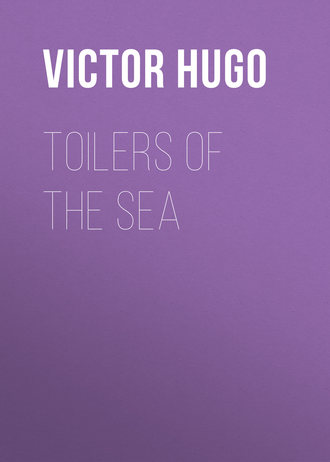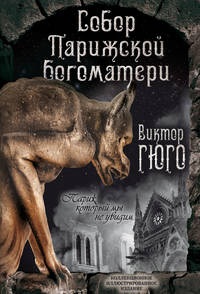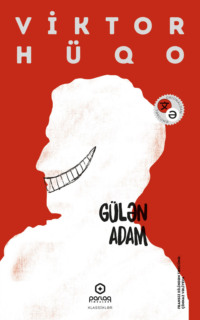 полная версия
полная версияToilers of the Sea
In our world of twilight this fatal order of things produces monsters. You ask for what purpose. We find the solution here.
But is this the solution? Is this the answer to our questionings? And if so, why not some different order of things? Thus the question returns.
Let us live: be it so.
But let us endeavour that death shall be progress. Let us aspire to an existence in which these mysteries shall be made clear. Let us follow that conscience which leads us thither.
For let us never forget that the highest is only attained through the high.
III
ANOTHER KIND OF SEA-COMBAT
Such was the creature in whose power Gilliatt had fallen for some minutes.
The monster was the inhabitant of the grotto; the terrible genii of the place. A kind of sombre demon of the water.
All the splendours of the cavern existed for it alone.
On the day of the previous month when Gilliatt had first penetrated into the grotto, the dark outline, vaguely perceived by him in the ripples of the secret waters, was this monster. It was here in its home.
When entering for the second time into the cavern in pursuit of the crab, he had observed the crevice in which he supposed that the crab had taken refuge, the pieuvre was there lying in wait for prey.
Is it possible to imagine that secret ambush?
No bird would brood, no egg would burst to life, no flower would dare to open, no breast to give milk, no heart to love, no spirit to soar, under the influence of that apparition of evil watching with sinister patience in the dusk.
Gilliatt had thrust his arm deep into the opening; the monster had snapped at it. It held him fast, as the spider holds the fly.
He was in the water up to his belt; his naked feet clutching the slippery roundness of the huge stones at the bottom; his right arm bound and rendered powerless by the flat coils of the long tentacles of the creature, and his body almost hidden under the folds and cross folds of this horrible bandage.
Of the eight arms of the devil-fish three adhered to the rock, while five encircled Gilliatt. In this way, clinging to the granite on the one hand, and with the other to its human prey, it enchained him to the rock. Two hundred and fifty suckers were upon him, tormenting him with agony and loathing. He was grasped by gigantic hands, the fingers of which were each nearly a yard long, and furnished inside with living blisters eating into the flesh.
As we have said, it is impossible to tear oneself from the folds of the devil-fish. The attempt ends only in a firmer grasp. The monster clings with more determined force. Its effort increases with that of its victim; every struggle produces a tightening of its ligatures.
Gilliatt had but one resource, his knife.
His left hand only was free; but the reader knows with what power he could use it. It might have been said that he had two right hands.
His open knife was in his hand.
The antenna of the devil-fish cannot be cut; it is a leathery substance impossible to divide with the knife, it slips under the edge; its position in attack also is such that to cut it would be to wound the victim's own flesh.
The creature is formidable, but there is a way of resisting it. The fishermen of Sark know this, as does any one who has seen them execute certain movements in the sea. The porpoises know it also; they have a way of biting the cuttle-fish which decapitates it. Hence the frequent sight on the sea of pen-fish, poulps, and cuttle-fish without heads.
The cephaloptera, in fact, is only vulnerable through the head.
Gilliatt was not ignorant of this fact.
He had never seen a devil-fish of this size. His first encounter was with one of the larger species. Another would have been powerless with terror.
With the devil-fish, as with a furious bull, there is a certain moment in the conflict which must be seized. It is the instant when the bull lowers the neck; it is the instant when the devil-fish advances its head. The movement is rapid. He who loses that moment is destroyed.
The things we have described occupied only a few moments. Gilliatt, however, felt the increasing power of its innumerable suckers.
The monster is cunning; it tries first to stupefy its prey. It seizes and then pauses awhile.
Gilliatt grasped his knife; the sucking increased.
He looked at the monster, which seemed to look at him.
Suddenly it loosened from the rock its sixth antenna, and darting it at him, seized him by the left arm.
At the same moment it advanced its head with a violent movement. In one second more its mouth would have fastened on his breast. Bleeding in the sides, and with his two arms entangled, he would have been a dead man.
But Gillian was watchful. He avoided the antenna, and at the moment when the monster darted forward to fasten on his breast, he struck it with the knife clenched in his left hand. There were two convulsions in opposite directions; that of the devil-fish and that of its prey. The movement was rapid as a double flash of lightnings.
He had plunged the blade of his knife into the flat slimy substance, and by a rapid movement, like the flourish of a whip in the air, describing a circle round the two eyes, he wrenched the head off as a man would draw a tooth.
The struggle was ended. The folds relaxed. The monster dropped away, like the slow detaching of bands. The four hundred suckers, deprived of their sustaining power, dropped at once from the man and the rock. The mass sank to the bottom of the water.
Breathless with the struggle, Gilliatt could perceive upon the stones at his feet two shapeless, slimy heaps, the head on one side, the remainder of the monster on the other.
Fearing, nevertheless, some convulsive return of his agony, he recoiled to avoid the reach of the dreaded tentacles.
But the monster was quite dead.
Gilliatt closed his knife.
IV
NOTHING IS HIDDEN, NOTHING LOST
It was time that he killed the devil-fish. He was almost suffocated. His right arm and his chest were purple. Numberless little swellings were distinguishable upon them; the blood flowed from them here and there. The remedy for these wounds is sea-water. Gilliatt plunged into it, rubbing himself at the same time with the palms of his hands. The swellings disappeared under the friction.
By stepping further into the waters he had, without perceiving, approached to the species of recess already observed by him near the crevice where he had been attacked by the devil-fish.
This recess stretched obliquely under the great walls of the cavern, and was dry. The large pebbles which had become heaped up there had raised the bottom above the level of ordinary tides. The entrance was a rather large elliptical arch; a man could enter by stooping. The green light of the submarine grotto penetrated into it and lighted it feebly.
It happened that, while hastily rubbing his skin, Gilliatt raised his eyes mechanically.
He was able to see far into the cavern.
He shuddered.
He fancied that he perceived, in the furthest depth of the dusky recess, something smiling.
Gilliatt had never heard the word "hallucination," but he was familiar with the idea. Those mysterious encounters with the invisible, which, for the sake of avoiding the difficulty of explaining them, we call hallucinations, are in nature. Illusions or realities, visions are a fact. He who has the gift will see them. Gilliatt, as we have said, was a dreamer. He had, at times, the faculty of a seer. It was not in vain that he had spent his days in musing among solitary places.
He imagined himself the dupe of one of those mirages which he had more than once beheld when in his dreamy moods.
The opening was somewhat in the shape of a chalk-burner's oven. It was a low niche with projections like basket-handles. Its abrupt groins contracted gradually as far as the extremity of the crypt, where the heaps of round stones and the rocky roof joined.
Gilliatt entered, and lowering his head, advanced towards the object in the distance.
There was indeed something smiling.
It was a death's head; but it was not only the head. There was the entire skeleton. A complete human skeleton was lying in the cavern.
In such a position a bold man will continue his researches.
Gilliatt cast his eyes around. He was surrounded by a multitude of crabs. The multitude did not stir. They were but empty shells.
These groups were scattered here and there among the masses of pebbles in irregular constellations.
Gilliatt, having his eyes fixed elsewhere, had walked among them without perceiving them.
At this extremity of the crypt, where he had now penetrated, there was a still greater heap of remains. It was a confused mass of legs, antennæ, and mandibles. Claws stood wide open; bony shells lay still under their bristling prickles; some reversed showed their livid hollows. The heap was like a mêlée of besiegers who had fallen, and lay massed together.
The skeleton was partly buried in this heap.
Under this confused mass of scales and tentacles, the eye perceived the cranium with its furrows, the vertebræ, the thigh bones, the tibias, and the long-jointed finger bones with their nails. The frame of the ribs was filled with crabs. Some heart had once beat there. The green mould of the sea had settled round the sockets of the eyes. Limpets had left their slime upon the bony nostrils. For the rest, there were not in this cave within the rocks either sea-gulls, or weeds, or a breath of air. All was still. The teeth grinned.
The sombre side of laughter is that strange mockery of expression which is peculiar to a human skull.
This marvellous palace of the deep, inlaid and incrusted with all the gems of the sea, had at length revealed and told its secret. It was a savage haunt; the devil-fish inhabited it; it was also a tomb, in which the body of a man reposed.
The skeleton and the creatures around it oscillated vaguely in the reflections of the subterranean water which trembled upon the roof and wall. The horrible multitude of crabs looked as if finishing their repast. These crustacea seemed to be devouring the carcase. Nothing could be more strange than the aspect of the dead vermin upon their dead prey.
Gilliatt had beneath his eyes the storehouse of the devil-fish.
It was a dismal sight. The crabs had devoured the man: the devil-fish had devoured the crabs.
There were no remains of clothing anywhere visible. The man must have been seized naked.
Gilliatt, attentively examining, began to remove the shells from the skeleton. What had this man been? The body was admirably dissected; it looked as if prepared for the study of anatomy; all the flesh was stripped; not a muscle remained; not a bone was missing. If Gilliatt had been learned in science, he might have demonstrated the fact. The periostea, denuded of their covering, were white and smooth, as if they had been polished. But for some green mould of sea-mosses here and there, they would have been like ivory. The cartilaginous divisions were delicately inlaid and arranged. The tomb sometimes produces this dismal mosaic work.
The body was, as it were, interred under the heap of dead crabs. Gilliatt disinterred it.
Suddenly he stooped, and examined more closely.
He had perceived around the vertebral column a sort of belt.
It was a leathern girdle, which had evidently been worn buckled upon the waist of the man when alive.
The leather was moist; the buckle rusty.
Gilliatt pulled the girdle; the vertebra of the skeleton resisted, and he was compelled to break through them in order to remove it. A crust of small shells had begun to form upon it.
He felt it, and found a hard substance within, apparently of square form. It was useless to endeavour to unfasten the buckle, so he cut the leather with his knife.
The girdle contained a little iron box and some pieces of gold. Gilliatt counted twenty guineas.
The iron box was an old sailor's tobacco-box, opening and shutting with a spring. It was very tight and rusty. The spring being completely oxidised would not work.
Once more the knife served Gilliatt in a difficulty. A pressure with the point of the blade caused the lid to fly up.
The box was open.
There was nothing inside but pieces of paper.
A little roll of very thin sheets, folded in four, was fitted in the bottom of the box. They were damp, but not injured. The box, hermetically sealed, had preserved them. Gilliatt unfolded them.
They were three bank-notes of one thousand pounds sterling each; making together seventy-five thousand francs.
Gilliatt folded them again, replaced them in the box, taking advantage of the space which remained to add the twenty guineas; and then reclosed the box as well as he could.
Next he examined the girdle.
The leather, which had originally been polished outside, was rough within. Upon this tawny ground some letters had been traced in black thick ink. Gilliatt deciphered them, and read the words, "Sieur Clubin."
V
THE FATAL DIFFERENCE BETWEEN SIX INCHES AND TWO FEET
Gilliatt replaced the box in the girdle, and placed the girdle in the pocket of his trousers.
He left the skeleton among the crabs, with the remains of the devil-fish beside it.
While he had been occupied with the devil-fish and the skeleton, the rising tide had submerged the entrance to the cave. He was only enabled to leave it by plunging under the arched entrance. He got through without difficulty; for he knew the entrance well, and was master of these gymnastics in the sea.
It is easy to understand the drama which had taken place there during the ten weeks preceding. One monster had preyed upon another; the devil-fish had seized Clubin.
These two embodiments of treachery had met in the inexorable darkness. There had been an encounter at the bottom of the sea between these two compounds of mystery and watchfulness; the monster had destroyed the man: a horrible fulfilment of justice.
The crab feeds on carrion, the devil-fish on crabs. The devil-fish seizes as it passes any swimming animal – an otter, a dog, a man if it can – sucks the blood, and leaves the body at the bottom of the water. The crabs are the spider-formed scavengers of the sea. Putrefying flesh attracts them; they crowd round it, devour the body, and are in their turn consumed by the devil-fish. Dead creatures disappear in the crab, the crab disappears in the pieuvre. This is the law which we have already pointed out.
The devil-fish had laid hold of him, and drowned him. Some wave had carried his body into the cave, and deposited it at the extremity of the inner cavern, where Gilliatt had discovered it.
He returned searching among the rocks for sea-urchins and limpets. He had no desire for crabs; to have eaten them now would have seemed to him like feeding upon human flesh.
For the rest, he thought of nothing but of eating what he could before starting. Nothing now interposed to prevent his departure. Great tempests are always followed by a calm, which lasts sometimes several days. There was, therefore, no danger from the sea. Gilliatt had resolved to leave the rocks on the following day. It was important, on account of the tide, to keep the barrier between the two Douvres during the night, but he intended to remove it at daybreak, to push the sloop out to sea, and set sail for St. Sampson. The light breeze which was blowing came from the south-west, which was precisely the wind which he would want.
It was in the first quarter of the moon, in the month of May; the days were long.
When Gilliatt, having finished his wanderings among the rocks, and appeased his appetite to some extent, returned to the passage between the two Douvres, where he had left the sloop, the sun had set, the twilight was increased by that pale light which comes from a crescent moon; the tide had attained its height, and was beginning to ebb. The funnel standing upright above the sloop had been covered by the foam during the tempest with a coating of salt which glittered white in the light of the moon.
This circumstance reminded Gilliatt that the storm had inundated the sloop, both with surf and rain-water, and that if he meant to start in the morning, it would be necessary to bail it out.
Before leaving to go in quest of crabs, he had ascertained that it had about six inches of water in the hold. The scoop which he used for the purpose would, he thought, be sufficient for throwing the water overboard.
On arriving at the barrier, Gilliatt was struck with terror. There were nearly two feet of water in the sloop. A terrible discovery; the bark had sprung a leak.
She had been making water gradually during his absence. Burdened as she was, two feet of water was a perilous addition. A little more, and she must inevitably founder. If he had returned but an hour later, he would probably have found nothing above water but the funnel and the mast.
There was not a minute to be lost in deliberation. It was absolutely necessary to find the leakage, stop it, and then empty the vessel, or at all events, lighten it. The pumps of the Durande had been lost in the break-up of the wreck. He was reduced to use the scoop of the bark.
To find the leak was the most urgent necessity.
Gilliatt set to work immediately, and without even giving himself time to dress. He shivered; but he no longer felt either hunger or cold.
The water continued to gain upon his vessel. Fortunately there was no wind. The slightest swell would have been fatal.
The moon went down.
Bent low, and plunged in the water deeper than his waist he groped about for a long time. He discovered the mischief at last.
During the gale, at the critical moment when the sloop had swerved, the strong bark had bumped and grazed rather violently on the rocks. One of the projections of the Little Douvre had made a fracture in the starboard side of the hull.
The leak unluckily – it might almost have been said, maliciously – had been made near the joint of the two riders, a fact which, joined with the fury of the hurricane, had prevented him perceiving it during his dark and rapid survey in the height of the storm.
The fracture was alarming on account of its size; but fortunately, although the vessel was sunk lower than usual by the weight of water, it was still above the ordinary water-line.
At the moment when the accident had occurred, the waves had rolled heavily into the defile, and had flooded through the breach; and the vessel had sunk a few inches under the additional weight, so that, even after the subsidence of the water, the weight having raised the water-line, had kept the hole still under the surface. Hence the imminence of the danger. But if he could succeed in stopping the leak, he could empty the sloop; the hole once staunched, the vessel would rise to its usual water-line, the fracture would be above water, and in this position the repair would be easy, or at least possible. He had still, as we have already said, his carpenters' tools in good condition.
But meanwhile what uncertainty must he not endure! What perils, what chances of accidents! He heard the water rising inexorably. One shock, and all would have perished. What misery seemed in store for him. Perhaps his endeavours were even now too late.
He reproached himself bitterly. He thought that he ought to have seen the damage immediately. The six inches of water in the hold ought to have suggested it to him. He had been stupid enough to attribute these six inches of water to the rain and the foam. He was angry with himself for having slept and eaten; he taxed himself even with his weariness, and almost with the storm and the dark night. All seemed to him to have been his own fault.
These bitter self-reproaches filled his mind while engaged in his labour, but they did not prevent his considering well the work he was engaged in.
The leak had been found; that was the first step: to staunch it was the second. That was all that was possible for the moment. Joinery work cannot be carried on under water.
It was a favourable circumstance that the breach in the hull was in the space between the two chains which held the funnel fast on the starboard side. The stuffing with which it was necessary to stop it could be fixed to these chains.
The water meanwhile was gaining. Its depth was now between two and three feet; and it reached above his knees.
VI
DE PROFUNDIS AD ALTUM
Gilliatt had to his hand among his reserve of rigging for the sloop a pretty large tarpaulin, furnished with long laniards at the four corners.
He took this tarpaulin, made fast the two corners by the laniards to the two rings of the chains of the funnel on the same side as the leak, and threw it over the gunwale. The tarpaulin hung like a sheet between the Little Douvre and the bark, and sunk in the water. The pressure of the water endeavouring to enter into the hold, kept it close to the hull upon the gap. The heavier the pressure the closer the sail adhered. It was stuck by the water itself right upon the fracture. The wound of the bark was staunched.
The tarred canvas formed an effectual barrier between the interior of the hold and the waves without. Not a drop of water entered. The leak was masked, but was not stopped. It was a respite only.
Gilliatt took the scoop and began to bale the sloop. It was time that she were lightened. The labour warmed him a little, but his weariness was extreme. He was forced to acknowledge to himself that he could not complete the work of staunching the hold. He had scarcely eaten anything, and he had the humiliation of feeling himself exhausted.
He measured the progress of his work by the sinking of the level of water below his knees. The fall was slow.
Moreover, the leakage was only interrupted; the evil was moderated, not repaired. The tarpaulin pushed into the gap began to bulge inside; looking as if a fist were under the canvas, endeavouring to force it through. The canvas, strong and pitchy, resisted; but the swelling and the tension increased; it was not certain that it would not give way, and at any moment the swelling might become a rent. The irruption of water must then recommence.
In such a case, as the crews of vessels in distress know well, there is no other remedy than stuffing. The sailors take rags of every kind which they can find at hand, everything, in fact, which in their language is called "service;" and with this they push the bulging sail-cloth as far as they can into the leak.
Of this "service," Gilliatt had none. All the rags and tow which he had stored up had been used in his operations, or carried away by the storm.
If necessary, he might possibly have been able to find some remains by searching among the rocks. The sloop was sufficiently lightened for him to leave it with safety for a quarter of an hour; but how could he make this search without a light? The darkness was complete. There was no longer any moon; nothing but the starry sky. He had no dry tow with which to make a match, no tallow to make a candle, no fire to light one, no lantern to shelter it from the wind. In the sloop and among the rocks all was confused and indistinct. He could hear the water lapping against the wounded hull, but he could not even see the crack. It was with his hands that he had ascertained the bulging of the tarpaulin. In that darkness it was impossible to make any useful search for rags of canvas or pieces of tow scattered among the breakers. Who could glean these waifs and strays without being able to see his path? Gilliatt looked sorrowfully at the sky; all those stars, he thought, and yet no light!
The water in the bark having diminished, the pressure from without increased. The bulging of the canvas became larger, and was still increasing, like a frightful abscess ready to burst. The situation, which had been improved for a short time, began to be threatening.
Some means of stopping it effectually was absolutely necessary. He had nothing left but his clothes, which he had stretched to dry upon the projecting rocks of the Little Douvre.
He hastened to fetch them, and placed them upon the gunwale of the sloop.
Then he took his tarpaulin overcoat, and kneeling in the water, thrust it into the crevice, and pushing the swelling of the sail outward, emptied it of water. To the tarpaulin coat he added the sheepskin, then his Guernsey shirt, and then his jacket. The hole received them all. He had nothing left but his sailor's trousers, which he took off, and pushed in with the other articles. This enlarged and strengthened the stuffing.









